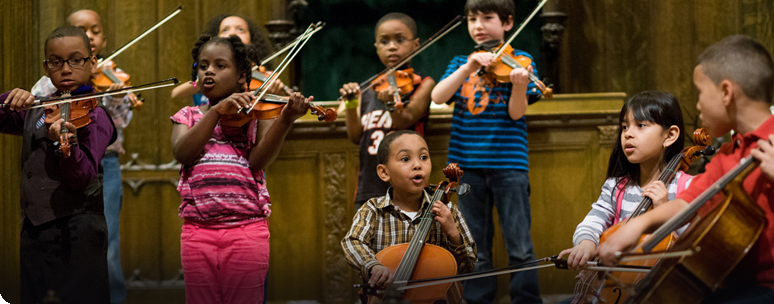The CTRL+ALT+REPEAT concert at Firehouse 13 on Sunday, February 25. Courtesy of Robert Bonotto. (for more, see Feb. 26 post)


The view from the audienceThe CTRL+ALT+REPEAT concert at Firehouse 13 on Sunday, February 25. Courtesy of Robert Bonotto. (for more, see Feb. 26 post) Boston Phil concert reportOn Sunday, February 25, there was a field trip to Later on, we met with the conductor Pics from an eventful weekend1. 30 CMW students and their families made the trip in the Blue Bus up to Sanders Theatre in Cambridge for a performance by the Boston Philharmonic Orchestra and old friend/mentor Benjamin Zander. You’ll have to match up the photo with the event… I’ve got dinner plans! -Heath Marlow, CMW staff Spirit of AdventureJust how does one locate the Providence String Quartet online? "I did a search for string quartets on Google, got way too many, and added teaching to the criteria and then looked at lots of webpages. I was looking particularly for community outreach and your program jumped out at me. Since we can’t afford to pay big bucks, we are looking for people who are interested in sharing their music and aren’t necessarily having to make their living with money from gigs. A spirit of adventure is always a good thing to have around here also so I was looking for folks who seemed to take a creative approach to music making." -Laura N. Cheers!Thank you Surdna Foundation for your belief in Community MusicWorks! Dobbs Hartshorne WorkshopDobbs stood a little shorter than his luscious dark brown Dobbs himself first learned to play the piano, After the Bach, Dobbs told a story, a spoken Dobbs’ story was accompanied by nine Phase II The tale focused on the loves of Billy (a birch Perhaps the best part of the story was being Since Dobbs had recently spent time in Ramallah and This year is CMW’s 10th anniversary. -Karen Violin in progressRemember the violin project mentioned previously? Here are photos from an early-February violin building session with local makers Andrew Ryan, Tucker Densley and Karl Dennis. All photos donated by Krzystyna Harber. |